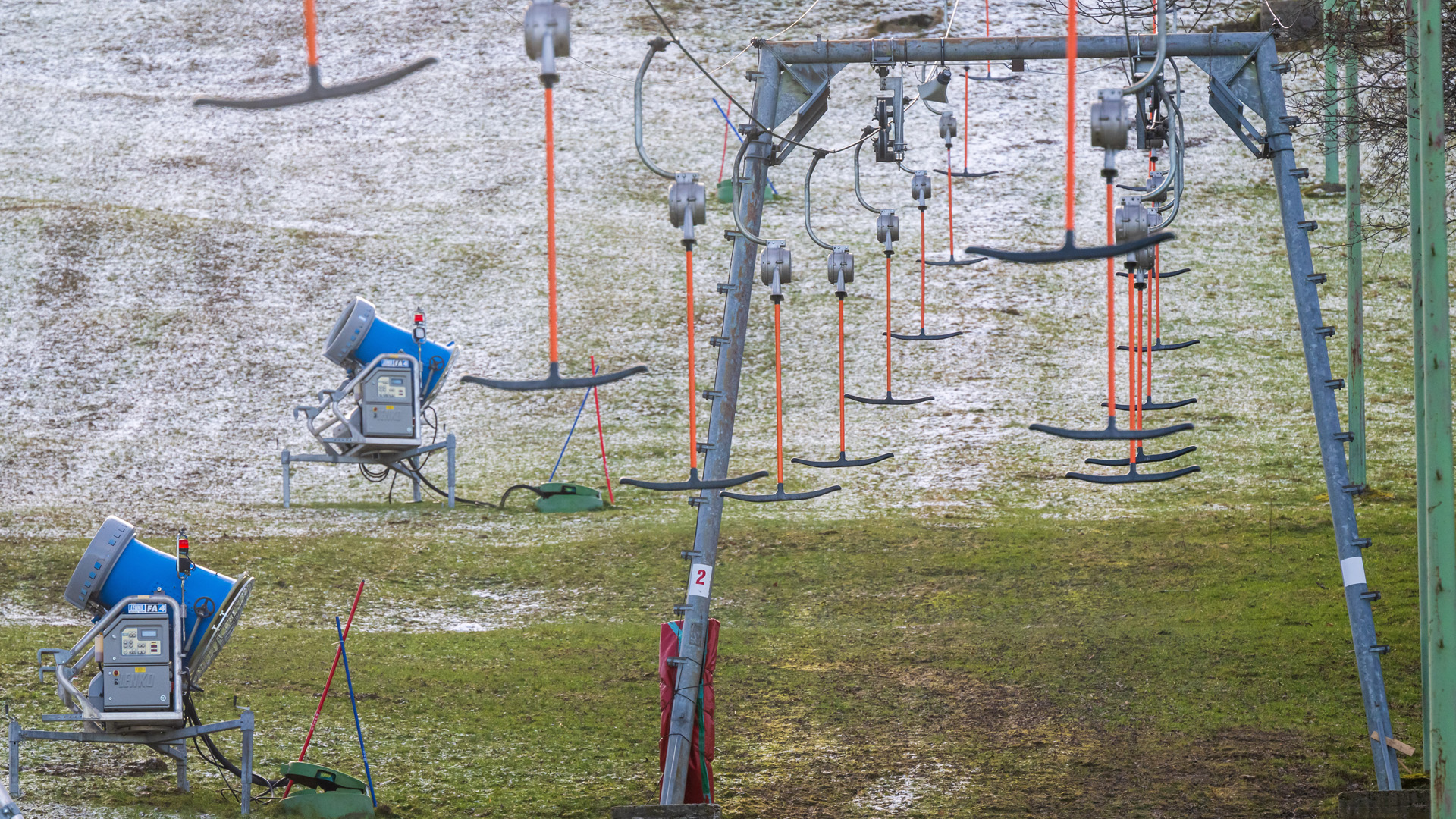Status: 01/31/2023 06:42 AM
It snows less in Germany. This was confirmed by analyzing nationwide weather data from BR data And Munich report. In order to continue to make winter sports possible, mountain regions have to spend more and more money.
The legendary “Kandahar Descent” begins high above Garmisch-Partenkirchen, approximately 1,700 meters above sea level. Since 1954, the fastest skiers in the world have landed here in battle for the podium. It should have been that time again last weekend. But the race was cancelled. little snow.
“It’s very frustrating for us. It’s bitter,” says Martina Betz, head of the Ski World Cup organizing committee in Garmisch-Partenkirchen. The trails are now whitewashed, and even a canyon trail is possible for the ski tourist. But professional racing is out of the question. In the end zone in Kandahar, Bates knelt down, pushed a bit of snow aside with his hands, and the grass immediately appeared. “We’re missing half a meter of snow here. You can clean the meadow here with your hands. We’re very, very far from a kind of foundation on which you can prepare for a sprint.”
Less snow in the winter sports areas
The trend is clear: There are fewer snow days at all – both in all of Germany and in the winter sports regions. This was confirmed by a recent analysis he conducted BR data and the ARD– Political magazine Munich report. Across Germany, there were still an average of 51 snow days in the 1960s – in the ten years leading up to 2022 only about half that number.
about data
The data used in this article is from the German Weather Service (DWD), where it has been available since 1951. DWD used the data interpolation method. Data were calculated from measurement points on snow depth in 1x1km grid areas. Looking locally, this can lead to inaccuracies. The data makes no statement about the concrete possibilities of winter sports.
Oberhof in the Thuringian Forest was once the training ground for East Germany’s winter sports elite. There are still great competitions on the slopes of cross-country skiing, ski jumping and the ice track. In 2023 there will be two world championships: the world bobsleigh championships at the end of January and the biathlon competitions in February.
100 million for the world championship
To keep this up, the state and federal government have invested heavily. Politicians have put about 100 million euros into sports facilities to force winter if necessary. These include modern cooling systems on an ice canal or snow cannons along a cross-country ski route. But the final achievement is hidden in a gray hall: some 7,500 cubic meters of ice, produced by the hall’s piping system. Since it started working last September. The huge hall is an ice factory and warehouse in one – a kind of ice life insurance for very mild winter days.
Oberhof is like other great ski areas in the lower mountain range. Climate change is especially noticeable here. According to the Federal Environment Agency, 100 days a year is the limit for profitable ski operations, and many ski areas in the lower mountain ranges are already below this value.
Climate neutral artificial snow?
The effort to continue to offer white ski slopes, especially in the lower mountain ranges, is remarkable. Hartmut Schubert, state secretary at Thuringia’s finance ministry and Oberhof’s official representative, says the procedures in Oberhof are as environmentally friendly as possible. Waste heat from the machines is intended to heat surrounding hotels, and solar power systems are being built. The melt water is reused for artificial snow.
However, despite modern technology, winter sports in Oberhof can only be planned for 10-15 years, says Schubert. New ideas are needed in the aftermath – but the region is willing to work on them. Summer biathlon, for example, with rollers on asphalt instead of snow.
Critics say winter sports resorts should implement these ideas now, not sometime in a few years. Sebastian Koenig of the Union for the Environment and Nature Conservation urges the region not to wait until there is a “big bang” and the winter sports federations cancel their competitions in Oberhof.
There is no support from the World Assembly
In Garmisch-Partenkirchen, Betz’s only hope is more snow and cooler temperatures next winter, so he can stage another World Cup downhill on the “Kandahar Slope”. Because snow cannons only work when the temperature is below zero. In any case, the FIS World Ski Association does not want to make any compromises. At the request of Munich report He simply answers that climate change affects everyone. It is up to the ski resorts themselves to create the conditions for a successful winter season.
Tradition or not – If there was no snow, it would be tight for ski areas in Germany. The warmer it gets, the more complex and costly the daily battle on the slopes becomes.

“Total coffee aficionado. Travel buff. Music ninja. Bacon nerd. Beeraholic.”








More Stories
Coral Seeding: Artificial Insemination Makes Coral More Heat Tolerant
Fear, Anger, and Denial: How People Respond to Climate Change – Research
LKH Graz: Using radiation to combat heart arrhythmias